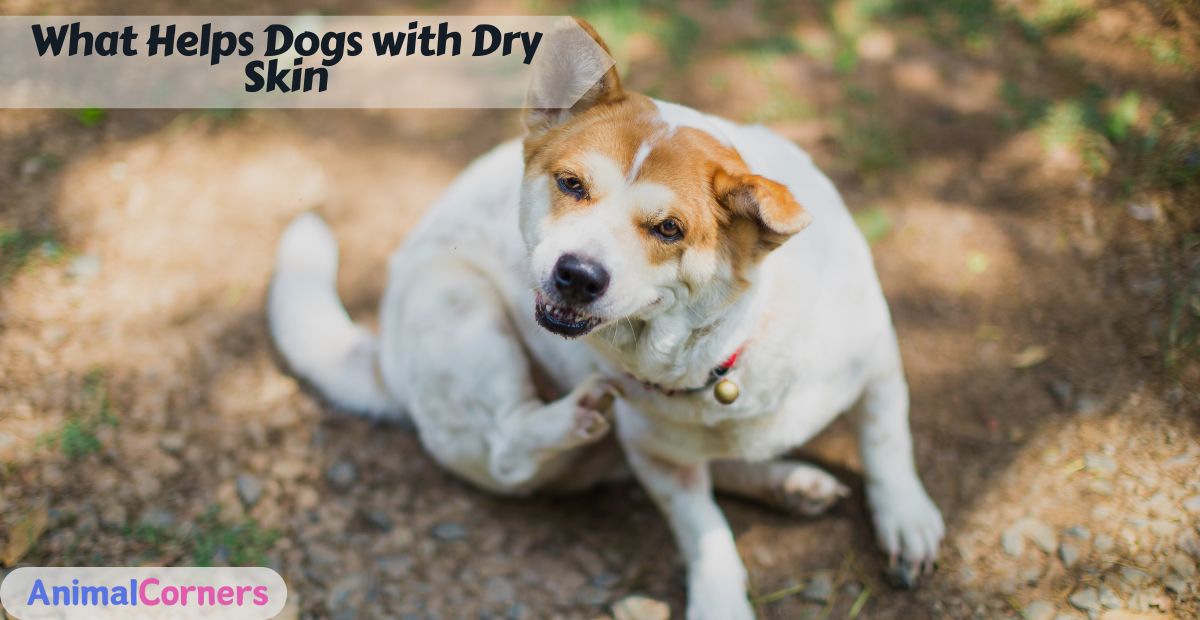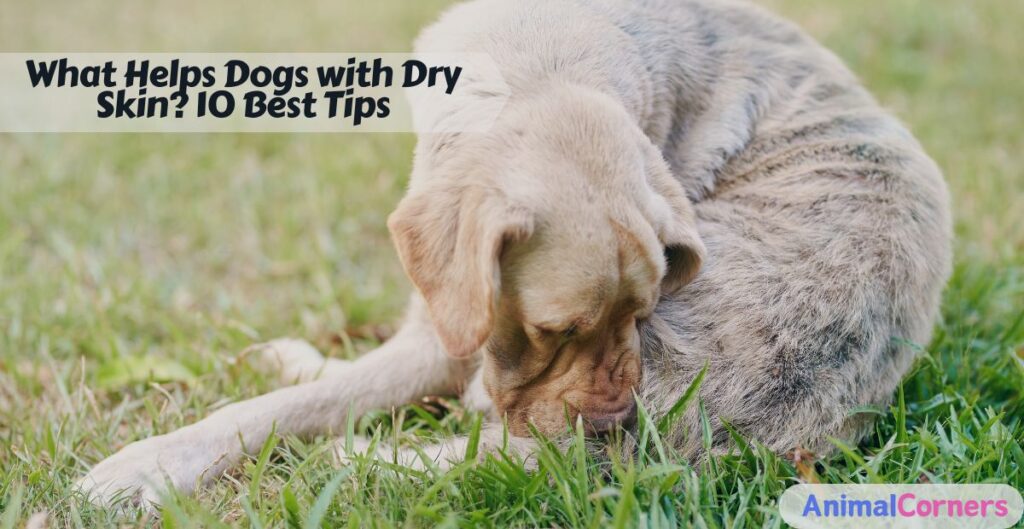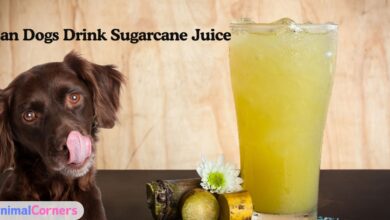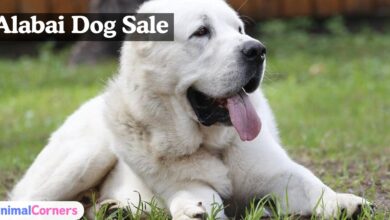What Helps Dogs with Dry Skin?

Dry skin in dogs is a shared issue that can result in discomfort and other health issues if left unaddressed. The indications of dry skin in dogs can vary, including itchiness, rawness, and obvious scaly or flaky patches. In severe cases, you might post that your dog has dry, flaky skin and scabs. Mutual reasons for these situations include environmental factors, allergies, poor diet, and certain medical conditions.
Dry skin must be addressed punctually, as it can impact your dog’s overall well-being. Proper organization and treatment, such as providing suitable dog dry skin remedies and using particular products for dry skin, play a crucial role in keeping skin healthy.
In this post, we will discover What Helps Dogs with Dry Skin. We will learn about the mutual reasons for dry skin and the symptoms to watch out for, including disquiet, redness, and flaky or peeling covers.
Also, it is important to address dry skin in puppies as they are more vulnerable to developing complications. Effective dry puppy skin remedies can help prevent these issues early on. By staying vigilant and proactive, you can confirm the comfort and health of your furry friend, mitigating the risks related to dog scaly skin and other related situations.
What are the Common Causes of Dry Skin in Dogs?
Environmental Factors
Environmental factors can meaningfully contribute to dry skin in dogs. Dry weather, mainly during winter or in arid temperatures, can strip the skin of moisture, which is important to dryness and flakiness.
Also, contact with harsh chemicals in some dusting products, shampoos, or lawn treatments can infuriate and dehydrate your dog’s skin.
It’s vital to be alert to these matters and take suspicious measures, such as using dog-friendly products and enough hydration.
Nutritional Deficiencies
A lack of vital fatty acids in your dog’s food can lead to dry skin. These nutrients, found in fish oil and flaxseed, are essential for keeping strong skin and coat.
Nutritional lacks can result from poor diet selections or gainful dog foods that lack vital nutrients.
Confirming your pup has a well-stable diet rich in omega-3 and omega-6 fatty acids can help keep their skin blended and strong.
Allergies
Allergies are the main offenders behind dry skin in dogs. Food allergies can grow if your dog is sensitive to certain elements, such as beef, chicken, or dairy.
Conservation allergens like pollen, dust, and growth can activate allergic responses, leading to dry and itchy skin.
Classifying and removing the allergens, whether through an elimination diet or reducing contact with environmental triggers, is vital for handling dry skin produced by allergies.
Parasites

Parasites like fleas and mites can cause significant discomfort and dry skin in dogs. Flea bites often lead to longing and frustration, and if the dog scratches extremely, the dry skin can be further worsened.
Mites, accountable for situations such as mange, can also cause plain skin dryness and flakiness.
Regular defensive actions and a clean living environment can help defend your dog from these
pests.
Underlying Health Conditions
Sure, underlying health conditions can be obvious, such as dry skin in dogs. Hypothyroidism, where the thyroid gland fails to crop sufficient hormones, can lead to skin matters, including dryness.
Autoimmune diseases can also affect the skin’s health by causing inflammation and irritation.
Suppose you are doubtful that an underlying health situation is producing your dog’s dry skin. In that case, it’s significant to check with a veterinarian for a good diagnosis and treatment strategy.
Aslo Read:-Golden Mountain Dog Breed Information
What are the Symptoms of Dry Skin in Dogs?
Knowing the symptoms of dry skin in dogs is key to addressing the matter first. Here are some mutual signs to look out for:
- Itchiness: If your dog is scratching more than usual, it may show dry skin.
- Redness: Red covers on the skin can designate touchiness and dryness.
- Flaky or Scaly Skin: Your strength notices white shavings or rough covers on your dog’s skin.
- Scabs: Extreme rubbing can lead to exposed sores and coatings.
- Dull Coat: Dry skin frequently results in a tedious and lackluster coat.
- Excessive Licking or Chewing: Dogs may overthrow or chew the pretentious areas to relieve unrest, which can deteriorate the issue.
If these suggestions persist, it’s a good idea to mention your dog to your veterinarian to determine the best treatment for its dry skin.
What Helps Dogs with Dry Skin? 10 Best Tips

Helping your dog contract with dry skin can advance their ease and overall health. Here are 10 best tips to address and accomplish dry skin in dogs:
Regular Grooming:
- Brush your dog regularly to remove dead skin cells and promote circulation.
- Use a soft-bristle brush to avoid irritating the skin.
Moisturizing Shampoos:
- Bathe your dog with moisturizing shampoos specially formulated for dry skin.
- Avoid shampoos with harsh chemicals or artificial fragrances that can worsen dryness.
Oatmeal Baths:
- Oatmeal baths can soothe dry, itchy skin.
- Mix ground oatmeal in warm water and let your dog soak for 10–15 minutes.
Omega Fatty Acids:
- Add Omega-3 and Omega-6 fatty acids to your dog’s diet.
- These nutrients, found in fish oil and flaxseed, help maintain healthy, hydrated skin.
Humidifier:
- Use a humidifier in your home to add dampness to the air.
- This can stop your dog’s skin from aerating out, particularly during winter.
Balanced Diet:
- Confirm your dog has a well-balanced diet rich in vitamins and reserves.
- High-value dog food that includes vital fatty acids stimulates strong skin and coat.
Regular Vet Checkups:
- Plan even visits to the veterinarian to screen your dog’s skin health.
- Early detection of underlying issues can prevent dry skin from developing.
Hydration:
- Make sure your dog drinks plenty of water.
- Good hydration is significant for maintaining skin dampness.
Coconut Oil:
- Relate a thin coat of coconut oil to dry covers of skin.
- Coconut oil has creaming and anti-provocative kinds of stuff.
Flea and Parasite Control:
- Use preventive actions to defend your dog from parasites and mites.
- A fresh living environment decreases the risk of skin frustration from vermin.
These tips help keep your dog’s skin strong and moisturized, reducing dryness and impatience. If dry skin persists, always refer your veterinarian for extra advice and possible treatments.
When to Consult a Veterinarian?

Suppose you notice that your dog’s dry skin is not successful or is getting worse; nevertheless, try home treatments. In that case, it’s time to consult a veterinarian. They can help classify the cause of dry skin and propose the best sequence of action. It’s also important to consult a vet if your dog is viewing signs of severe distress, such as dangerous rubbing, redness, or scabs.
Prescription Medications
Veterinarians often prescribe medications to help manage dry skin in dogs. Some common prescription medications include:
- Antihistamines: These help decrease itching and irritation produced by allergies.
- Corticosteroids: These are solid anti-inspiring drugs that can quickly decrease soreness and itching.
Treatment of Underlying Health Conditions
Dry skin can sometimes be a symptom of an underlying health situation. Your vet may indorse specific treatments to address these matters:
- Hypothyroidism: Treatment typically includes extra hormone therapy to stabilize the thyroid stages.
- Autoimmune Diseases: Your vet may recommend immunosuppressive drugs to switch the situation and ease skin indications.
Additional Tips
- Continue next to the grooming, and dietary adjustments are optional to keep your dog’s skin strong.
- Always follow your vet’s guidelines regarding medicine and treatment strategies.
Consulting with a veterinarian confirms that your dog receives suitable maintenance and respite from the uneasiness of dry skin.
FAQs
How can I moisturize my dog’s skin naturally?
Natural ways to situation your dog’s skin include the addition of Omega-3 and Omega-6 fatty acids to their food, which help maintain a strong skin wall. You can also topically use normal oils such as coconut oil, olive oil, or fish oil. Be sure to consult your vet before making any important variations.
Can I rub coconut oil on my dog to help dry skin?
Yes, applying coconut oil is a real and usual way to help alleviate dry skin in dogs. Coconut oil has creaming and anti-provocative belongings that can soothe and hydrate your dog’s skin. Apply a thin layer to the pretentious areas and screen for allergic responses.
What do vets give dogs for dry skin?
Veterinarians may recommend various handlings for dry skin in dogs, contingent on the basic reason. Mutual prescription medications include antihistamines for allergies and corticosteroids for irritation. If the dry skin is due to an underlying health condition, specific treatments such as hormone additional therapy for hypothyroidism or immunosuppressive drugs for autoimmune diseases may be optional.
What human lotion can I use on my dog?
It is usually not optional to use human lotion on your dog. Human lotions can contain fixings that harm dogs and may cause annoyance or toxicity. Instead, opt for products precisely spoken for canine skin, such as vet-approved moisturizing balms or usual options like coconut oil. Always check with your veterinarian before using any new product on your dog.
What are the signs that my dog has dry skin?
Mutual signs of dry skin in dogs include flakiness, dandruff, dangerous rubbing, redness, and impatience. If you sign any of these symptoms, take appropriate steps to moisturize your dog’s skin and check with a veterinarian if the condition persists.
Conclusion
Managing and stopping dry skin in dogs requires a holistic approach. This means seeing many factors that contribute to your dog’s skin health. Regular grooming helps remove dead skin cells and promotes flow. Using moisturizing shampoos and giving oatmeal baths can calm and hydrate dry skin. Your dog’s diet is also vital; confirm it’s sure and includes Omega-3 and Omega-6 fatty acids for strong skin. Keeping proper hydration and using a humidifier at home can avoid skin dryness. Regular vet checkups are significant to detect and treat any underlying health conditions. Lastly, controlling fleas and parasites is vital to prevent skin irritation. You can help your dog maintain healthy, moisturized skin by speaking these areas.




